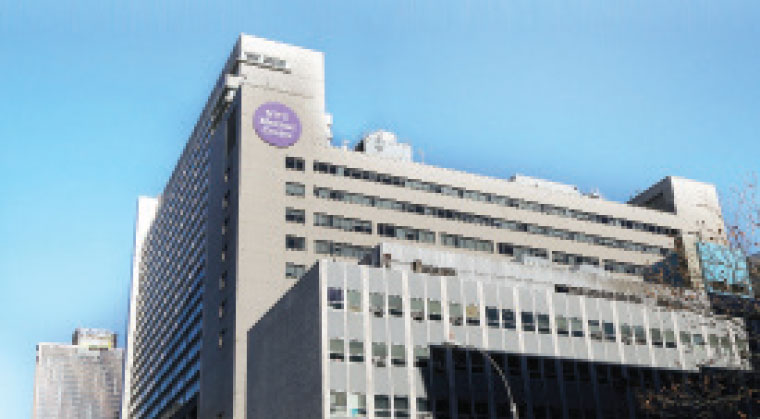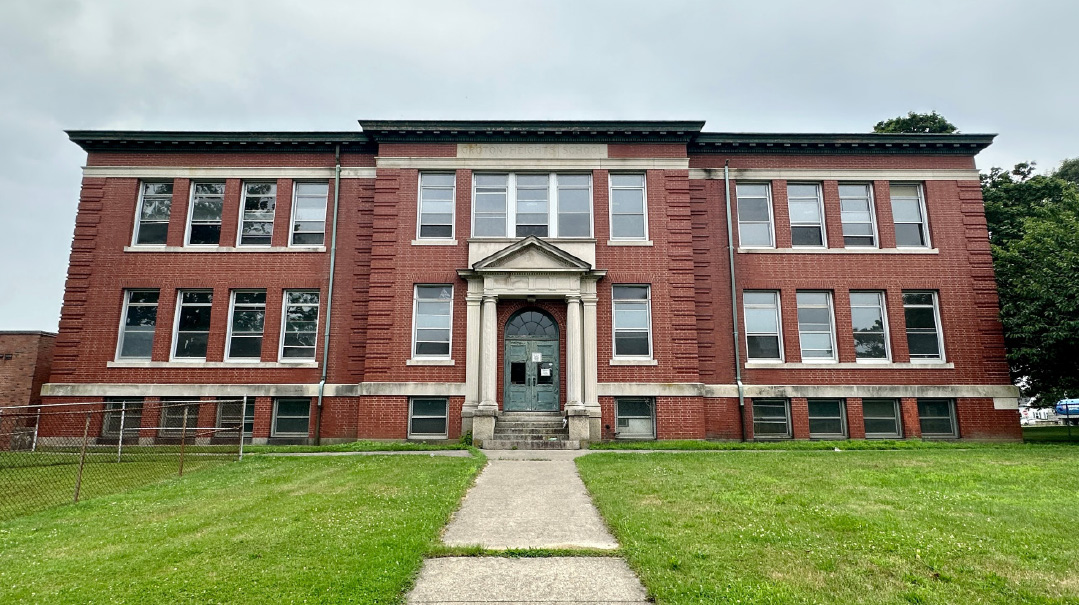What’s Really Going on at NYU Hospital?


I
t seemed like the idyllic relationship, and for many years it was: The charitable women of Satmar Bikur Cholim would deliver their celebrated food packages to patients at major New York hospitals, including the well-respected NYU Langone Medical Center. The hospitals, in turn, would graciously allow these women to offer support and encouragement along with their world-famous chicken soup.
But the relationship between the Satmar volunteers and NYU in particular has soured of late, as the hospital recently banned all non-family members and friends from patient rooms. The news spread like wildfire on social media and beyond, with contradictory statements being issued from both the hospital and the chesed organization. Before long, it became obvious that there was more to this story than just chicken soup.
NYU Langone is considered one of the nation’s premier medical centers, located in the heart of Manhattan. Its First Avenue main campus, called the Tisch Hospital, boasts 725 beds, 66 operating rooms, and accommodated 27,000 inpatient visits in 2017 alone.
At first, a hospital spokesperson claimed the new policy had only to do with hospital security. “For the safety and privacy of our patients,” said a member of the hospital’s communications staff, “we have limited outside volunteers, vendors, delivery people and other non-visitors and staff from going directly onto patient floors and into patient rooms.”
A source from Bikur Cholim D’Satmar, whom we’ll call Rochel, confirms that her fellow volunteers have been asked to stop visiting patients in their rooms. “Since they are not allowed to go upstairs,” Rochel says, “they call the patients or their family members to meet them downstairs with the food packages.”
“Devorah,” another Satmar volunteer, offers a slightly different spin on this story. “I can tell you what the facts are,” she says. “It’s very straightforward — NYU banned Satmar Bikur Cholim from coming to its main hospital, where we’ve been going for over 30 years. And it’s not just about the food.”
In fact, Devorah says, the new ban centers on a debate over end-of-life issues.
“We’re very much pro-life,” Devorah explains, “and respect for life.”
But the hospital, like many others, has a different view on measures taken to prolong a patient’s life. Devorah says many gravely sick people are being denied treatment, so much so that “our patients are in danger when they go there.”
Bikur Cholim D’Satmar fulfills more than one function at the hospital. In addition to serving meals, the organization also provides counsel to patients who request it.
“We are at the forefront of patient advocacy and guiding the community in making medical decisions,” she says, explaining that the food and consulting services are provided separately. “But when a patient complains to a volunteer that they are in a difficult situation and don’t know where to turn, they are directed to call Bikur Cholim’s offices, where there is a team of advocates who can guide the families. And that’s what NYU is fighting.”
According to Devorah, Bikur Cholim will only advocate for patients who ask for their help. She adds that this issue has been ongoing for about a year, but only went public a couple of weeks ago.
“We tried to talk to them. We asked NYU to help us continue in our mission. But they refused.” Meanwhile, she says, the volunteers are being humiliated by hospital security. “They follow the ladies into crowded elevators and say, ‘You! Get out!’ It’s a very unpleasant situation.”
To be clear, the Bikur Cholim room located on the first floor at NYU Langone is fully stocked and functional. Patients and their families can still enjoy not just coffee and a Danish, but a large variety of foods, especially on Shabbos.
“It’s very balabatish,” says Rochel.
But not every patient can send a family member down to the Bikur Cholim room on the first floor. And asking the volunteers to leave individual food packages with the front desk, says Devorah, is also not a solution. “If we leave it with security, we can’t guarantee that it stays kosher. Also, there are patients who don’t have anyone with them to send downstairs.”
Mishpacha attempted to contact the media relations staff at NYU Langone several times to clarify the hospital’s position, but so far the hospital has not responded. In a general statement to the press last week, the hospital vehemently defended its conduct and questioned Satmar’s motives.
“Fulfilling the religious and cultural needs of everyone who comes to our hospital is integral to ensuring the welfare and well-being of the patients and the communities we serve,” said Dr. Andrew Brotman, NYU Langone’s senior vice president and vice dean for clinical affairs and strategy. Brotman added that Satmar Bikur Cholim is making “a misguided and irrational attempt to grossly inflate its role,” saying “the group has gone out of its way to distort the truth by spreading outright falsehoods and misleading innuendo.”
As the struggle escalates, others in the Satmar community are trying to tone down the rhetoric. Rabbi Mayer Schnitzler, a spokesperson for Satmar, calls the entire issue “fake news.”
“Yes, there is a problem,” he says, “but it’s not limited to NYU. It’s going on today at every hospital.”
Schnitzler says that sitting down with the hospital administration would be more effective than churning out dramatic headlines. “We don’t solve the problem this way. Instead, we negotiate. To smear the hospital is not the right way to handle this.”
He admits that the issues have not yet been resolved. “It’s going to take time, but they’re willing to work with us. We’ll meet with them and see how this can be worked out.”
And what should the Bikur Cholim ladies do in the meantime? “They can try to go upstairs. But if they’re stopped, they should leave the packages at the front desk.”
A Life-and-Death Issue
In an effort to educate patients and their families on the halachic view of end-of-life issues, a group of activists have produced a new booklet, Life or Death: Facing End-of-Life Issues in the Modern World, to be sold in bookstores throughout North America.
One of the activists, Toronto-based hedge fund manager and rabbi Zale Newman, says the issues at NYU are not unique to New York.
“This is a real issue,” he says. “It’s about the current world attitude that it’s a mitzvah to end someone’s life, that you’re actually doing them a tovah. And that’s completely opposite of the Torah view.”
Rabbi Yaacov Haber, whose Mosaica Press published the booklet, says there is a major difference of opinion between the Jewish world and the medical establishment on end-of-life practices. He hopes that the booklet will help clarify the halachic issues for patients. “And if it can keep one person alive for an extra ten minutes, it is worth it.” (Originally featured in Mishpacha, Issue 713)
Oops! We could not locate your form.













